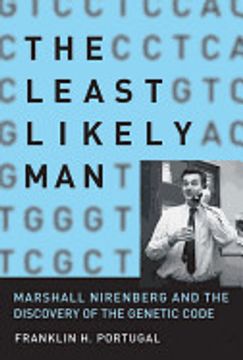The Least Likely Man: Marshall Nirenberg and the Discovery of the Genetic Code (The mit Press)
Reseña del libro "The Least Likely Man: Marshall Nirenberg and the Discovery of the Genetic Code (The mit Press)"
How unassuming government researcher Marshall Nirenberg beat James Watson, Francis Crick, and other world-famous scientists in the race to discover the genetic code.The genetic code is the Rosetta Stone by which we interpret the 3.3 billion letters of human DNA, the alphabet of life, and the discovery of the code has had an immeasurable impact on science and society. In 1968, Marshall Nirenberg, an unassuming government scientist working at the National Institutes of Health, shared the Nobel Prize for cracking the genetic code. He was the least likely man to make such an earth-shaking discovery, and yet he had gotten there before such members of the scientific elite as James Watson and Francis Crick. How did Nirenberg do it, and why is he so little known? In The Least Likely Man, Franklin Portugal tells the fascinating life story of a famous scientist that most of us have never heard of.Nirenberg did not have a particularly brilliant undergraduate or graduate career. After being hired as a researcher at the NIH, he quietly explored how cells make proteins. Meanwhile, Watson, Crick, and eighteen other leading scientists had formed the “RNA Tie Club” (named after the distinctive ties they wore, each decorated with one of twenty amino acid designs), intending to claim credit for the discovery of the genetic code before they had even worked out the details. They were surprised, and displeased, when Nirenberg announced his preliminary findings of a genetic code at an international meeting in Moscow in 1961. Drawing on Nirenberg's “lab diaries,” Portugal offers an engaging and accessible account of Nirenberg's experimental approach, describes counterclaims by Crick, Watson, and Sidney Brenner, and traces Nirenberg's later switch to an entirely new, even more challenging field. Having won the Nobel for his work on the genetic code, Nirenberg moved on to the next frontier of biological research: how the brain works.

